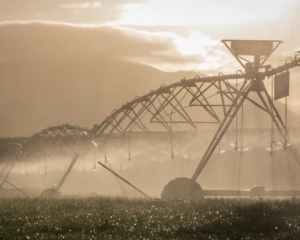
It was found in ryegrass seed grown in the Ashburton district, which was being tested at a seed processing plant for purity and germination as part of routine pre-export certification.
It was not part of a spill which occurred between Tinwald and Methven in 2013.
Biosecurity New Zealand principal response manager David Yard said the farm the seed came from was one of several properties under routine surveillance for black-grass after planting contaminated imported seed back in 2007.
“Biosecurity New Zealand is still investigating but we believe the discovery is connected to the importation of contaminated seed in 2007. Black-grass was detected in a 2016 ryegrass harvest and we commenced a response with the seed sector, Federated Farmers and local authorities to eliminate black-grass.
“Initially, three black-grass (Alopecurus myosuroides) seeds were found in a 100g sample of ryegrass seed. Subsequent testing of the remainder of the harvest (about 14 tonnes) found further low-level contamination with black-grass seeds,” he said.
Black-grass seed was known to survive in the ground for many years and it was likely this incursion had come from the sowing of contaminated seed in 2007-08.
“This detection, while disappointing, was not unexpected given the ability of black-grass seed to persist in the environment for many years. This is why Biosecurity New Zealand and the seed growing industry had been carrying out ongoing surveillance for this weed,” he said.
“Black-grass has been found on only three properties, so we do not believe the pest is widespread,” he said.
Black-grass was a serious pest weed in Europe and the United Kingdom, especially as it was resistant to many herbicides, making it difficult to control.
However, it was not expected to take hold in New Zealand, due to Biosecurity New Zealand, farmers and the seed industry taking any incursion seriously from the outset.
Since the discovery, Biosecurity New Zealand had ensured all affected ryegrass seed was being held securely at the seed facility, Mr Yard said.
“We are working to have the seed approved for shipment to another country which already has black-grass and has no restrictions on these imports. This seed cannot be sold in New Zealand.
“We have also directed seed offal [waste material from the seed processing] to be destroyed securely by deep burial.”
A visit to the farm concerned noted the farmer had very good biosecurity practices in place and the processing company did exactly the right thing, notifying Biosecurity New Zealand of the detection and securing stock on the premises.
Mr Yard said Canterbury farmers should continue to keep a lookout for black-grass.
If they believed they had found it, they should not disturb the seed head, but take a photo and call the Pest and Disease Hotline on 0800 809-966 to report the suspected find.













